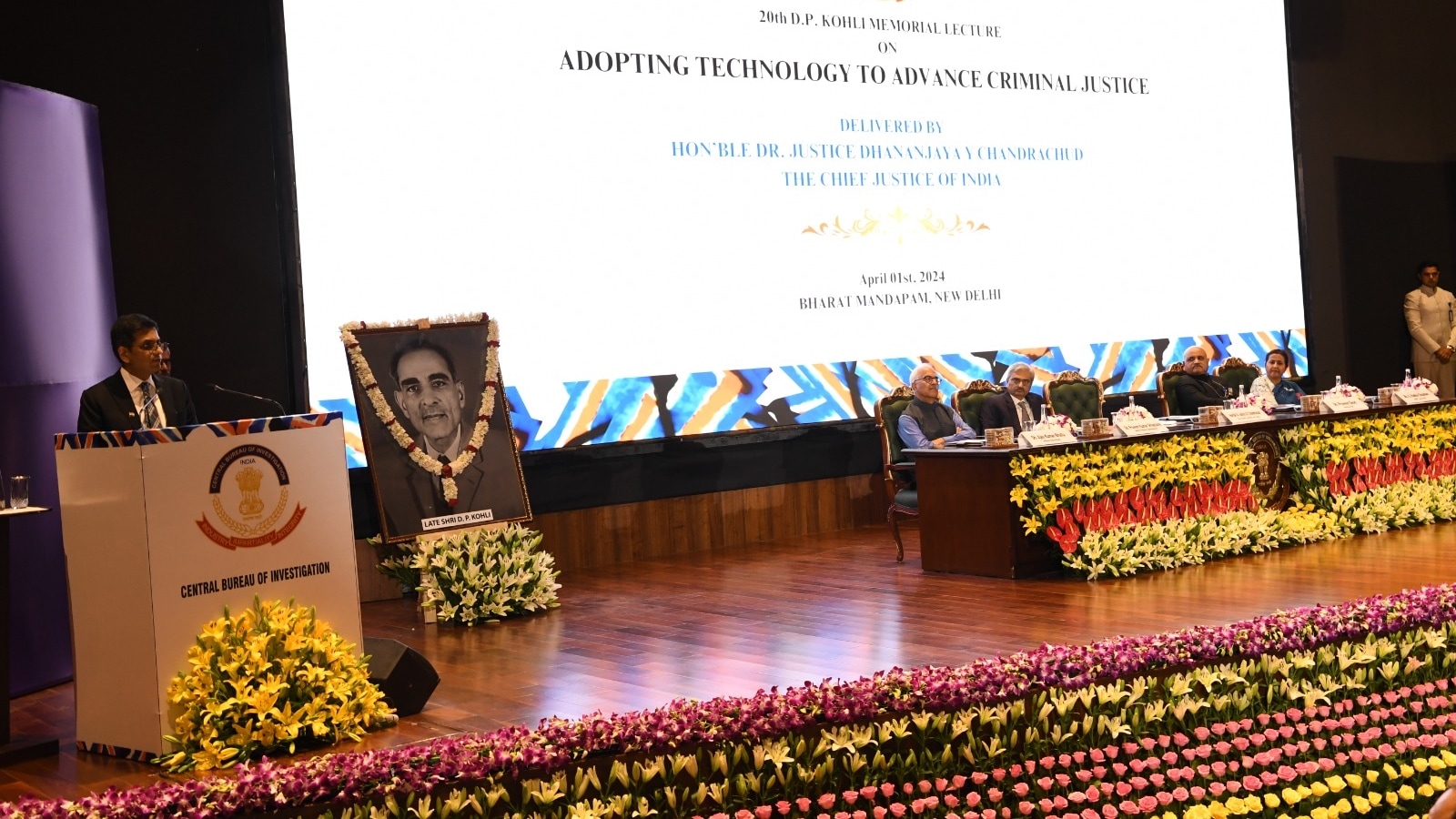Need to strike balance between agencies’ probe needs and privacy rights: CJI Chandrachud
Referring to Section 94 of the newly enacted Bharatiya Nagarik Suraksha Sanhita, 2023 and Section 185 of the Bharatiya Sakshya Adhiniyam 2023, the CJI said these grant the courts and law enforcement agencies “the authority to summon documents and materials, including digital evidence deemed necessary for investigation”.
 Justice Chandrachud said the landscape of crime was evolving at an "unprecedented pace" and probe agencies like the Central Bureau of Investigation (CBI) must build their capacities to tackle them apart from harnessing Artificial Intelligence (AI) tools. (Photo/X/@CBIHeadquarters)
Justice Chandrachud said the landscape of crime was evolving at an "unprecedented pace" and probe agencies like the Central Bureau of Investigation (CBI) must build their capacities to tackle them apart from harnessing Artificial Intelligence (AI) tools. (Photo/X/@CBIHeadquarters)Underlining the “pressing need to strike a balance”, Chief Justice of India DY Chandrachud said Monday that unwarranted confiscation of personal devices by investigative agencies raises concerns of an individual’s right to privacy.
Referring to Section 94 of the newly enacted Bharatiya Nagarik Suraksha Sanhita, 2023 and Section 185 of the Bharatiya Sakshya Adhiniyam 2023, the CJI said these grant the courts and law enforcement agencies “the authority to summon documents and materials, including digital evidence deemed necessary for investigation”.
“Instances of raids conducted and incidents of unwarranted confiscation of personal devices highlight the pressing need to strike a balance between investigative imperatives and individual privacy rights,” CJI said.
The CJI was delivering the 20th D P Kohli Memorial Lecture on “Adopting Technology to Advance Criminal Justice.” The lecture is held on CBI Day, marking the day when the Central Bureau of Investigation was established in 1963. CBI Director Praveen Sood, Union Home Secretary Ajay Bhalla and Attorney General for India R Venkataramani were present at the event.
The BNSS and the BAS replaced the Code of Criminal Procedure and the Evidence Act respectively.
While underlining the complexities involved in investigation and trial of a corruption charge, the CJI called for a “swift” delivery of justice.
CHIEF JUSTICE OF INDIA DELIVERS THE 20TH D. P. KOHLI MEMORIAL LECTURE ON THE THEME “ADOPTING TECHNOLOGY TO ADVANCE CRIMINAL JUSTICE”
ALSO PRESENTS MEDALS TO 35 CBI OFFICERS & OFFICIALS FOR DISTINGUISHED & MERITORIOUS SERVICE pic.twitter.com/pW7k7WoKgB— Central Bureau of Investigation (India) (@CBIHeadquarters) April 1, 2024
“To prosecute or defend in a CBI case is no easy task. Because of the nature of the investigation undertaken by the CBI, the record and documentary evidence is bulky and complicated. Many scientific and field specific expert witnesses require scrutiny. The number of oral witnesses cited by the prosecution may run into triple digits. The nature of crime may also require close scrutiny of the functioning of a government department or the specialised field,” the CJI said.
“The justice delivery mechanism must be swift. The life of the accused is altered and their reputation is significantly hurt when they are accused of an offence. Delays in the disposal of cases therefore become a significant impediment in the process of justice delivery,” he said.
The CJI also lauded the newly enacted criminal laws as a “significant step towards modernising the justice system.”
“The new criminal laws enacted by Parliament encompass substantive crime, procedure and evidence. These laws aim at digitising various aspects of criminal procedure. This is a significant step towards modernising the justice system. From the initial registration of a First Information Report to the final delivery of judgment, every stage of a criminal investigation is slated to be recorded digitally under the purview of the proposed legislation,” he said.







